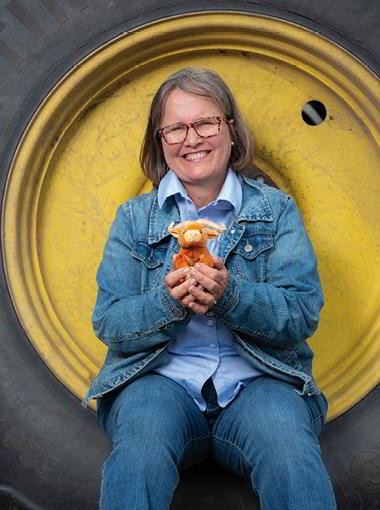Bridging Borders and Breaking Silos: Lessons from a UK-Canada Farm Succession Exchange

Succession planning on family farms is often described as complex, emotional, and sensitive. But perhaps the most dangerous descriptor is this: isolated. That theme came through loud and clear in a recent international discussion hosted by the Succession Alliance, where a group of UK succession coaches met with Canadian experts Elaine Froese and Lydia Carpenter to share ideas, challenges, and approaches to this deeply human work.
The UK group included Michael Mack, Amy Fry, Jo Speed, Peter Craven, Christine Malseed, Matt Swain, and Becky Miles—practitioners with diverse backgrounds but a shared commitment to helping farming families navigate generational change.
The meeting was framed not as a presentation but a dialogue—an open exploration of what works, what gets in the way, and what we might do better. And as conversations unfolded, one thing became clear: we are not as different as we might think.
Across both countries, the same key issues surfaced:
1. Fear and Avoidance
Families often delay succession conversations out of fear—fear of upsetting the current generation, fear of failure, or fear of opening emotional wounds. But as one participant noted, "Conflict is not the problem. Avoiding it is."
2. The Professional Gap
Farms often lack the formal structures—such as regular family business meetings, job descriptions, and decision-making frameworks—that are standard in other businesses. Without these, succession planning quickly becomes informal, unclear, and fragile.
3. Identity and Legacy
Succession isn’t just about land or leadership. It’s about identity. Who am I if I step back? Who gets to be seen as the successor? How do we honour the past while preparing for the future?
The session also highlighted what happens when we do this work collaboratively. Elaine and Lydia shared insights from their work with farming families across Canada—stories of stuck families, breakthroughs, and strategies that mirrored many UK experiences.
Crucially, they offered reflections on the role of facilitators. Lydia reminded us that "holding space isn't passive work"; it requires structure, clarity, and emotional intelligence. And Elaine emphasised the importance of helping families "build their courage muscle" as they face hard conversations.
What emerged was not just a list of tools or tips, but a deeper recognition that we need to bring succession work out of the shadows. That means making it more visible, more supported, and more connected.
For the Succession Alliance, this was a timely reminder of why we exist. We are here to learn from one another, to challenge assumptions, and to raise the standard of support offered to UK farming families.
We're incredibly grateful to Elaine and Lydia for sharing their time, wisdom and honesty. And we're committed to continuing these conversations—across counties and across continents.
If you work with farm families, we invite you to be part of this dialogue. Because while succession might be personal, it doesn’t have to be isolating.
#SuccessionAlliance #FarmSuccession #FamilyFarming #RuralLeadership #Coaching #Facilitation #NextGenFarming